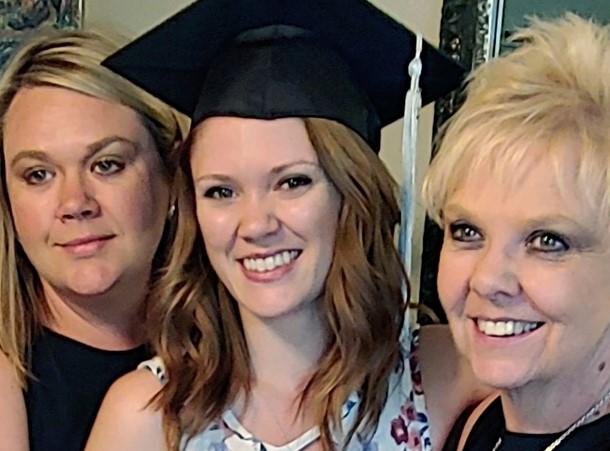An Idaho woman is suing her one-time fertility doctor, saying he secretly used his own sperm to inseminate her 34 years ago – the latest in a string of such cases brought as at-home DNA sampling enables people to learn more about their ancestry.
Sharon Hayes, 67, of Hauser, Idaho, said in the lawsuit that she sought fertility care from Dr. David R. Claypool, an obstetrician and gynecologist in Spokane, Washington, in 1989 after she and her then-husband had been unable to conceive.
She wanted an anonymous donor, and, according to the complaint filed Wednesday in Spokane County Superior Court, Claypool informed her the donor would be selected based on traits she selected, such as hair and eye color, and that the donor would be screened for health or genetic issues. He charged $100 cash for each of several treatments, saying the money was for the college or medical students who were donating the sperm, the lawsuit said.
But last year, her 33-year-old daughter, Brianna Hayes, learned who her biological father was after submitting her DNA to the genetic testing and ancestry website 23andMe, Brianna Hayes told The Associated Press on Thursday.
Sharon Hayes via AP
“It’s been an identity crisis, for sure,” she said. “This was hidden from me my whole life. I felt traumatized for my mom, and the fact that I’m a product of his actions is off-putting.”
Hayes also learned something else: She had at least 16 other half-siblings in the area, she said. It was not immediately clear if any other women are pursuing legal claims against Claypool.
The AP was unable to reach Claypool through phone numbers listed for him. His lawyer, Drew Dalton, declined to comment in response to an emailed request, saying he hadn’t had a chance to speak with his client.
Dalton told The Seattle Times, which first reported about the lawsuit Thursday, the matter had been in mediation. But the newspaper reported that Claypool claimed he had no knowledge of the allegations and didn’t know Sharon Hayes. He stopped practicing in 2005, he said.
“I know people are very happy,” Claypool said of his past patients. “But this is the first I’ve heard of anything in 40 years.”
A number of cases of “fertility fraud” have arisen as online DNA services have proliferated. Last year, a New York Times story said more than 50 U.S. fertility doctors had been accused of fraud related to donated sperm, and a Netflix documentary focused on an Indiana fertility specialist who secretly fathered at least 94 children while inseminating patients.
A Colorado jury awarded nearly $9 million to three families who accused a fertility doctor of using his own sperm to inseminate mothers who requested anonymous donors.
The claims in Sharon Hayes’ lawsuit include fraud, failure to obtain consent in violation of state medical malpractice law, and violation of state consumer protection law for “his scheme to charge cash for his own sperm, while he was representing it was a donor’s sperm,” said RJ Ermola, an attorney for Hayes.
Brianna Hayes said she has enjoyed getting to know her half-siblings, but she has never met Claypool. She initially sought genetic information to see if it would help explain health issues, including a childhood bout with leukemia – “conditions that do not run on my mom’s side of the family.”
She said her mother has struggled with the revelation: “She’s a puddle this morning,” she said. “She feels immense guilt for putting me in this situation. I told her, ‘This wasn’t you at all – you went through all the appropriate channels to do what you needed to do. You were just being a mom, wanting to be a loving mother.'”

 Latest Breaking News Online News Portal
Latest Breaking News Online News Portal





